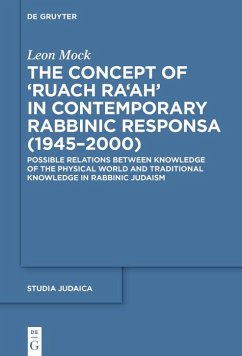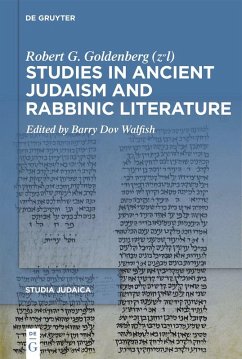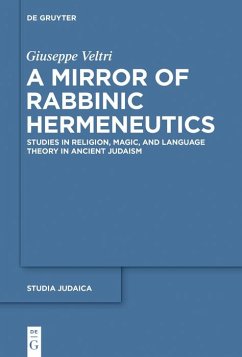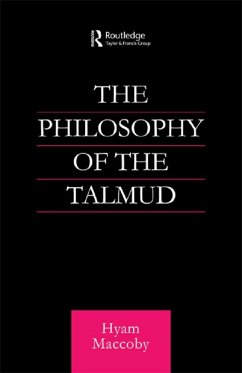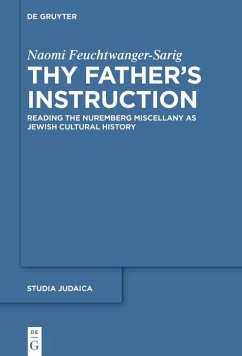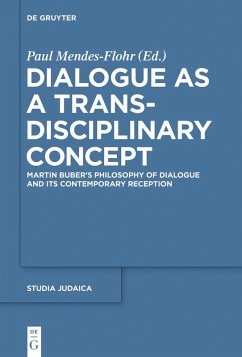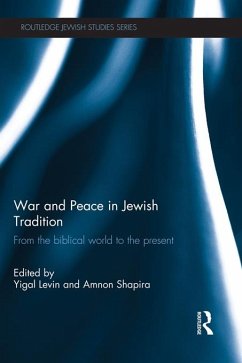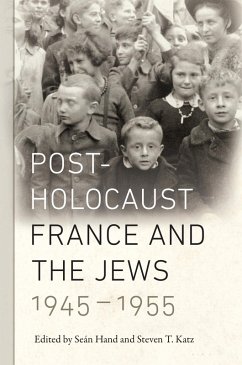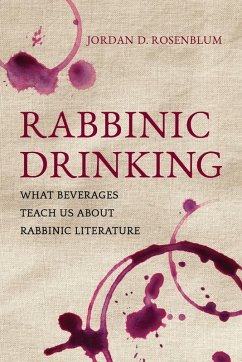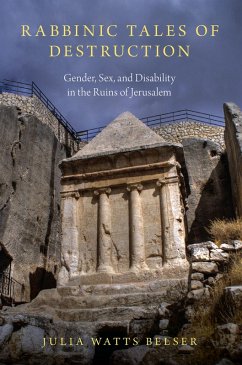
The Concept of >Ruach Ra'ah< in Contemporary Rabbinic Responsa (1945-2000) (eBook, ePUB)
Possible Relations between Knowledge of the Physical World and Traditional Knowledge in Rabbinic Judaism
Versandkostenfrei!
Sofort per Download lieferbar
90,95 €
inkl. MwSt.
Weitere Ausgaben:

PAYBACK Punkte
45 °P sammeln!
The concept of 'Ruakh Ra'ah' (Evil Spirit), is extremely rare in the Tanach, but is found much more frequently in post-Biblical rabbinic literature and even more in publications by rabbis of the last two centuries. This study focuses on the quite neglected period of responsa literature after the Second World War until the present. This literature consist fo answers given to questions about religious rules. The notion of the 'evil spirit' is strongly connected to the ritual of washing hands in the morning, but also before a meal, in connection with sexual relations and with visiting a graveyard...
The concept of 'Ruakh Ra'ah' (Evil Spirit), is extremely rare in the Tanach, but is found much more frequently in post-Biblical rabbinic literature and even more in publications by rabbis of the last two centuries. This study focuses on the quite neglected period of responsa literature after the Second World War until the present. This literature consist fo answers given to questions about religious rules. The notion of the 'evil spirit' is strongly connected to the ritual of washing hands in the morning, but also before a meal, in connection with sexual relations and with visiting a graveyard. The washing of hands is supposed to be necessary to ward off bad influences. This ritual can be understood in between mysticism, gender studies, magic and embodied religion.
This book analyses the meaning and role of the 'Ruakh Ra'ah' in a corpus of almost 200 rabbinic orthodox response from 1945-2000. What happens to the term Ruakh Ra'ah in these modern responsa? Does the ritual persist without being associated with the Ruakh Ra'ah, or does the term continue to be linked to the ritual, but reinterpreted in cause of the possible tension between the traditional rabbinic paradigm and the modern scientific knowledge paradigm. The connection between this ritual and the stratification of the (ultra) orthodox society and cosmological representations offers a clue to the rationale of this practice. Questions of identity, gender and community boundaries that divide insiders from outsiders (Jewish and non-Jewish) seem to be related to the discourse in the corpus on this ritual.
As the Ruakh Ra'ah stands at the intersection between magical perceptions, religion (ritual), and premodern science (medicine) it is suitable as a possible test case for the way in which modern rabbinic responsa deal with other archaic terms and concepts that are related or comparable to the Ruakh Raah. This book is relevant to the debate on the relation of religion to the modern world as it provides insights into the ways contemporary believers deal with the modern world, and the various mechanisms to deal with potential discrepancies.
This book analyses the meaning and role of the 'Ruakh Ra'ah' in a corpus of almost 200 rabbinic orthodox response from 1945-2000. What happens to the term Ruakh Ra'ah in these modern responsa? Does the ritual persist without being associated with the Ruakh Ra'ah, or does the term continue to be linked to the ritual, but reinterpreted in cause of the possible tension between the traditional rabbinic paradigm and the modern scientific knowledge paradigm. The connection between this ritual and the stratification of the (ultra) orthodox society and cosmological representations offers a clue to the rationale of this practice. Questions of identity, gender and community boundaries that divide insiders from outsiders (Jewish and non-Jewish) seem to be related to the discourse in the corpus on this ritual.
As the Ruakh Ra'ah stands at the intersection between magical perceptions, religion (ritual), and premodern science (medicine) it is suitable as a possible test case for the way in which modern rabbinic responsa deal with other archaic terms and concepts that are related or comparable to the Ruakh Raah. This book is relevant to the debate on the relation of religion to the modern world as it provides insights into the ways contemporary believers deal with the modern world, and the various mechanisms to deal with potential discrepancies.
Dieser Download kann aus rechtlichen Gründen nur mit Rechnungsadresse in A, B, BG, CY, CZ, D, DK, EW, E, FIN, F, GR, HR, H, IRL, I, LT, L, LR, M, NL, PL, P, R, S, SLO, SK ausgeliefert werden.




